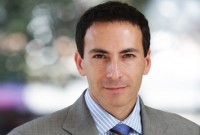The Blood Detective: Taming the Flash and Other Menopausal Symptoms

Women baby boomers are no strangers to hormonal imbalances including menstrual irregularities, peri-menopause and menopause. Andropause is the male version of menopause and affects males very differently than women. However, this article will focus on women.
While menopause is a natural event in the lives of all women, you do have some influence over the frequency and intensity of your hot flashes or other menopausal symptoms. The lifestyle choices you make—what you eat, drink or wear and even how you relieve stress—can affect your symptoms. That’s why any successful therapy for menopausal symptom relief also includes recommendations for modifying the things in your life you can control.
Here are some tips to help you tame hot flashes and other menopausal symptoms, such as moodiness, sadness and sleeplessness.
Stay Physically Cool
Anything that tells your body it’s hot can trigger a hot flash. So try to stay cool inside and out.
Regulate Your Surroundings
Lower the thermostat if you’re feeling hot, use a ceiling or portable fan, desk fan or hand fan and avoid hot places.
Adopt a New Dress Code
Wear thin layers and choose breathable fabrics such as cotton, linen or rayon.
Set a Nightly Routine
Use cotton bed sheets and take a cool shower before sleeping.
Food and Beverage Choices
Drink plenty of water, choose cold drinks over hot ones, avoid spicy foods, eat sea vegetables like dulse and kelp to replace minerals lost by sweat and choose high phytoestrogen and lignin-rich foods that act as gentle estrogen mimics. These include beans (navy, pinto, black, red, peas), legumes (chickpeas, peanuts, lentils), soy items (tofu, tempeh, soy milk, protein powder), flax and sunflower seeds, whole oats, groats and wheat berries and pears, broccoli and carrots.
Stay Mentally Cool
Anxiety is closely related to hot flashes, so keeping a cool state of mind alleviates hot flashes.
Reduce Common Stress Triggers
While sometimes used as so-called “stress relievers caffeine, alcohol and smoking should be limited.
Fine-Tune Your Eating Habits
Maintaining blood sugar balance throughout the day helps you avoid triggering the stress response. Eat a high quality protein breakfast every day, space meals three to four hours apart to curb hunger cravings and keep healthy snacks handy if you’re a “stress eater.”
Get to Know Your Stress Relievers
When you turn on the relaxation response, the stress response turns off. Find your “on” switch to relax. Try deep breathing, visualization and guided imagery, yoga and pilates and regular exercise.
Share Your Experience and Passion for Life
This is a time to reconnect and plan the next 30 to 40 years of your life. Share your menopause experience with other women for support. Finding your passion and community participation influence your emotional well-being and mood to counter stress.
Keep a Hot Flash Diary
It helps identify your personal hot flash pattern and triggers. Sometimes it’s when and where you eat spicy foods or drink hot beverages or wine that trigger your symptoms. Sometimes it’s how much you eat or drink. Your diary builds awareness.
Get Healthy and Fit
If you’re physically unfit or overstressed you may be at greater risk for osteoporosis, heart disease, degenerative joint problems and dementia. But these conditions are preventable and can be modified with diet, physical activity and stress management.
More Tips
Have basic and more advanced nutritional and hormonal levels checked. Everything that you eat causes hormonal changes. Foods and certain nutritional compounds can help or hurt your hormonal levels. To best balance hormone levels, consider the suggestions herein and also bio-identical (natural) hormones along with specific nutrients based upon your laboratory work.
Dr. Michael Wald is director of nutrition at Integrated Medicine of Mount Kisco. He is the author of more than 10 books and software. His latest book is “The Blood Detective’s Longevity Manual – Your Personal Guide to Better Health.” Visit www.intmedny.com and www.blooddetective or contact him at 914-242-8844 ext. 1.

Adam has worked in the local news industry for the past two decades in Westchester County and the broader Hudson Valley. Read more from Adam’s author bio here.
